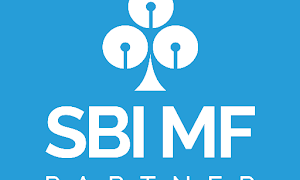Do not be in a hurry to seal the deal quickly. Read the fine print of the bank’s scheme carefully and seek clarifications.
In India, home loans are a common way for individuals to finance the purchase of a residential property.
The amount you can borrow for a home loan usually depends on your income, credit score, and the value of the property you want to purchase. Most lenders offer loans of up to 80% of the property value, but this can vary.
Home loan interest rates in India can vary depending on the lender, the loan amount, and the loan tenure. Some lenders may also offer floating or fixed interest rates.
Home loans in India typically have tenures of up to 30 years, but this can vary depending on the lender and the borrower’s age.
Read More: UPI In Dubai? After Singapore, India’s UPI May Extend To These 3 Countries: Report
Your bank will assess your repayment capacity while deciding the home loan eligibility.
Repayment capacity is based on your monthly disposable income and other factors like spouse’s income, assets, liabilities, stability of income etc..
How will your bank decide your home loan eligibility?
As per the RBI, the main concern of the bank is to make sure that you comfortably repay the loan on time and ensure end use. The higher the monthly disposable income, the higher will be the amount you will be eligible for loan.
Typically a bank assumes that about 55-60 % of your monthly disposable / surplus income is available for repayment of loan.
However, some banks calculate the income available for EMI payments based on an individual’s gross income and not on his disposable income.
The amount of the loan depends on the tenure of the loan and the rate of interest also as these variables determine your monthly outgo / outflow which in turn depends on your disposable income.
Banks generally fix an upper age limit for home loan applicants.
Read More: ‘Rise Up, Baby!’ With New Tagline, Pepsi Onboards Ranveer Singh as its Brand Ambassador
What are the different interest rate options offered by banks?
Banks generally offer either of the following loan options: Floating and Fixed Rate Home Loans.
For a fixed rate home loan, the rate of interest is fixed either for the entire tenure of the loan or a certain part of the tenure of the loan. In case of a pure fixed loan, the EMI due to the bank remains constant.
However, if you have fixed EMI, any reduction in interest rates in the market will not benefit you.
The EMI of a floating rate loan changes with changes in market interest rates. If market rates increase, your repayment increases. When rates fall, your dues also fall.
What documents are generally sought for loan approval?
In addition to all legal documents relating to the house being bought, like builder buyer agreement, payments receipts, builder bank NOC etc., banks will also ask you to submit identity and residence proof, latest salary slip and Form 16 and last 6 months bank statements, as applicable.
Loan applications form would give a checklist of documents to be attached with the application.
What are the minimum standards that banks are required to follow when they sell you a home loan?
As per the RBI guidelines, at the time of sourcing the loan, banks are required to provide information about the interest rate applicable, the fees / charges and any other matter which affects your interest and the same are usually furnished in the product brochure of the banks. Complete transparency is mandatory.
The banks will supply you with authenticated copies of all the loan documents executed by you at their cost along with a copy each of all enclosures quoted in the loan document on request.
It is advised to discuss and seek more information on any waivers in terms and conditions provided by the bank.
For example some banks insist on submission of life insurance policies of the borrower / guarantor equal to the loan amount assigned in favour of the bank. There are usually amount ceilings for this condition which can also be waived by appropriate authority.
Do not be in a hurry to seal the deal quickly. Read the fine print of the bank’s scheme carefully and seek clarifications.





































